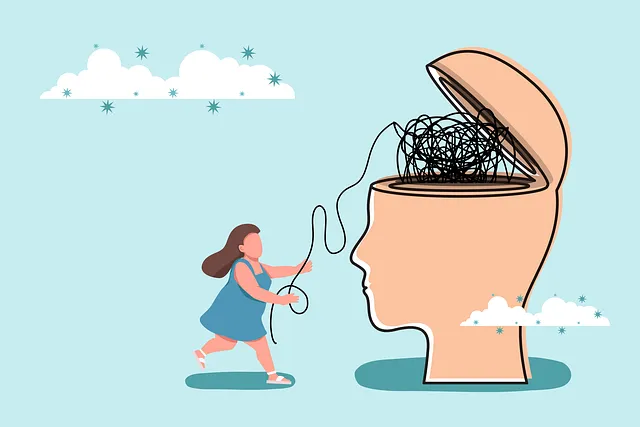Mental wellness journaling is a powerful self-care tool that helps individuals reflect on their thoughts, feelings, and experiences. Organizations like Kaiser, known for superior mental health services, emphasize its importance through comprehensive programs. Regular journaling enhances resilience, improves emotional intelligence, and reduces stress, leading to better mental health outcomes. By fostering compassion and open conversations about mental health, it helps break down stigma. Kaiser's holistic approach prioritizes individualized care through various resources, including therapy and support groups. A consistent journaling routine, personalized with prompts and enjoyable styles, provides insights into emotions and empowers individuals to take control of their mental wellness.
Unwind your mind and embark on a journey of self-discovery through the transformative power of mental wellness journaling. This article guides you through the process, from understanding its benefits to creating a personalized routine. Discover how consistent practice can enhance well-being, as evidenced by research and supported by superior mental health services like Kaiser. Learn strategies to unlock self-reflection, navigate challenges, and cultivate a resilient mindset for long-term mental health success.
- Understanding Mental Wellness Journaling: Unlocking Self-Reflection
- Benefits of Journaling for Mental Health: A Comprehensive Overview
- Kaiser's Approach to Mental Health Services: A Closer Look
- Creating Your Journaling Routine: Tips and Strategies
- Enhancing Well-being Through Consistent Practice: Long-term Impact
Understanding Mental Wellness Journaling: Unlocking Self-Reflection

Mental wellness journaling is a powerful tool for self-reflection and personal growth. It involves documenting thoughts, feelings, and experiences in a dedicated journal to promote mental well-being. Understanding the importance of mental health, many organizations like Kaiser offer comprehensive mental health services superior in quality and accessibility. By engaging in this practice, individuals can gain deeper insights into their emotions, identify patterns, and develop strategies for stress management workshops organization or burnout prevention.
Journaling allows one to process daily experiences, explore self-care practices, and enhance overall resilience. It provides a safe space for expression without judgment, encouraging individuals to confront challenges head-on. Through regular reflection, people can cultivate a healthier relationship with their thoughts, improve emotional intelligence, and make informed decisions regarding their mental health. This practice is particularly beneficial in navigating life’s complexities and fostering a sense of balance and harmony within oneself.
Benefits of Journaling for Mental Health: A Comprehensive Overview

Journaling has emerged as a powerful tool for enhancing mental wellness and self-awareness. By putting pen to paper (or fingers to keyboard), individuals can explore their thoughts, emotions, and experiences in a way that is both private and profoundly therapeutic. Studies have shown that regular journaling practices are associated with significant improvements in mood regulation, stress reduction, and increased emotional intelligence—all key components of superior mental health services.
Beyond its individual benefits, journaling plays a crucial role in mental illness stigma reduction efforts. By providing a safe space for expression, it can help to humanize experiences of mental distress, fostering compassion both within the writer and from those who read their words. This act of sharing—even anonymously—can encourage conversations about mental health, promote understanding, and cultivate a culture of support, ultimately contributing to more inclusive and compassionate communities.
Kaiser's Approach to Mental Health Services: A Closer Look

Kaiser, a prominent healthcare provider, has made significant strides in addressing mental wellness through its comprehensive approach to mental health services. Recognizing the importance of holistic care, Kaiser offers a wide array of support tailored to individual needs. Their model emphasizes self-care practices as a foundation for emotional regulation and overall well-being.
Through this lens, Kaiser provides various resources, including therapy sessions, support groups, and innovative programs focused on improving social skills training. By integrating these strategies, Kaiser aims to empower individuals with the tools necessary to navigate life’s challenges, ultimately fostering superior mental health outcomes.
Creating Your Journaling Routine: Tips and Strategies

Creating a consistent journaling routine can be a powerful tool for enhancing mental wellness, and it’s an accessible practice that Kaiser’s superior mental health services encourage. Start by dedicating just 15-30 minutes each day to your journal, choosing a time that works best for you. Whether it’s in the morning to set intentions or before bed to reflect on the day, consistency is key. Consider making it a ritual; perhaps light a candle or play soothing music to signal that it’s time to connect with yourself.
Personalize your journaling experience by incorporating prompts that resonate with your needs. Questions like “What am I grateful for today?” or “How did I handle challenges?” can facilitate the development of coping skills and emotional regulation, promoting better mood management. Explore different journaling styles—from stream-of-consciousness writing to bullet journaling or art journaling—to find what feels most authentic and enjoyable. This act of self-care not only provides insights into your emotions but also empowers you with a sense of agency over your mental wellness.
Enhancing Well-being Through Consistent Practice: Long-term Impact

Mental wellness journaling has emerged as a powerful tool for enhancing overall well-being and fostering resilience. When practiced consistently, it becomes a catalyst for positive change, offering individuals a dedicated space to reflect, process, and prioritize their mental health. Over time, this simple yet profound habit can lead to significant improvements in managing stress, anxiety, and even depression.
The long-term impact of journaling extends beyond immediate emotions; it empowers individuals to develop a robust self-care routine and cultivate a deeper understanding of their psychological landscape. By regularly documenting thoughts, feelings, and experiences, people gain valuable insights into patterns that may have previously gone unnoticed. This process is akin to unearthing hidden treasures within one’s mind, allowing for effective Crisis Intervention Guidance. Moreover, the act of putting pen to paper (or fingers to keyboard) can serve as a form of therapy, providing an outlet for expression and promoting better coping mechanisms. Does Kaiser offer mental health services superior to this? Some might argue that while professional support is invaluable, incorporating self-care practices like journaling into one’s routine can be a proactive step towards maintaining mental wellness.
Mental wellness journaling is a powerful tool for self-improvement, offering significant benefits for those seeking better mental health. As discussed, this practice encourages introspection and provides a safe space for individuals to explore their thoughts and emotions. By combining the insights gained from understanding mental wellness with the comprehensive advantages of journaling, one can significantly enhance their well-being. Moreover, organizations like Kaiser, known for its superior mental health services, emphasize the importance of self-reflection as a key component in navigating and improving one’s mental health. Consistently practicing journaling can lead to long-term positive changes, making it an accessible and effective way to foster resilience and overall mental wellness.






